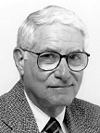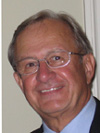| Home | Blog | Ask This | Showcase | Commentary | Comments | About Us | Contributors | Contact Us |

The Iowa caucuses: Hope and hokum in the heartlandCOMMENTARY | June 158, 2007It’s crisis time: Millions may pick their presidential preferences very early next year--before the Iowa caucuses and thus without the wisdom of a handful of Iowans to guide them. Will the media be able to handle that? The first in a series. By Herb Strentz and Gilbert Cranberg DES MOINES—Here in the "Heartland," where we take our letters seriously, consider the 4 H's of the Iowa Caucuses. An appreciation of the presidential caucuses, like the quadrennial gatherings themselves, is a curious mixture of Hopes, Hokum, Humor and, of course, History. Early absentee voters in these states will mark their ballots without knowing which front runners met or exceeded expectations in Iowa, without knowing which candidates are deemed to have gained or lost momentum and without knowing which of the dark-horse candidates has been crowned a legitimate candidate thanks to the news media – which had so much to do in bringing about the Iowa scenario in the first place. All the more reason to come to grips with Iowa caucuses and electoral mania and have an idea about what is going on here. In addition to our upcoming posts, a recommended guide is a 1987 book, The Iowa Precinct Caucuses, The Making of a Media Event (Iowa State University Press) by Hugh Winebrenner. Winebrenner, a Drake University professor of public administration, is now retired. His theme in part was that "the caucuses have become a media event with an impact on presidential politics totally out of proportion to the reality of their purpose or procedural methods." Yet about 20 presidential hopefuls from both parties have been criss-crossing Iowa for months, opening campaign offices, hiring full-time staff, button-holing Iowans and collectively spending tens of millions of dollars. (The ballpark estimate of what it costs to mount a caucus campaign in Iowa is $5 million, and a Clinton adviser put her Iowa tab at $15 million.) And for what? For openers it is a matter of hopes and expectations. Dark-horse candidates hope to impress enough caucus goers to bring some legitimacy to their campaigns. Front runners hope to validate their positions. It doesn't really matter if you win or lose, but whether you top or fall short of what the news media have reported you will do. In that regard, a candidate can get, say, 14 percent of the caucus support – not the same thing as the percent of the votes – and be a winner (as Alan Keyes was in 2000) and get 35 percent and be a loser (as Bill Bradley was in 2000). In addition to working out the kinks in campaign strategies, all are competing for the upbeat headline in the day-after, Jan. 15, caucus story, which won't even reveal how many delegates the candidates actually won.
|




